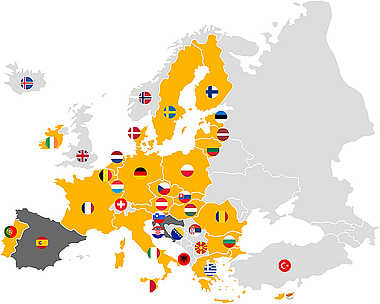


As an IP Specialist Law Firm combining both prosecution and litigation expertise across its 80 attorneys, Meissner Bolte is a single point of contact providing client oriented advice from both patent attorneys and IP specialised lawyers: this means we are ideally positioned to represent patent law cases before the UPC. Several of our experts were directly involved in the development of the new system and all of our attorneys have prepared intensively for this new era.
Find out everything you need to know.

“From the start we expected the UPC to be a great success and are therefore very well prepared. This expectation is fully confirmed by the more than 20 actions which were filed at the start of the system, i.e. in June 2023 - including cases by Meissner Bolte.”
-Tilman Pfrang, LL.M., Partner and European Patent Litigator